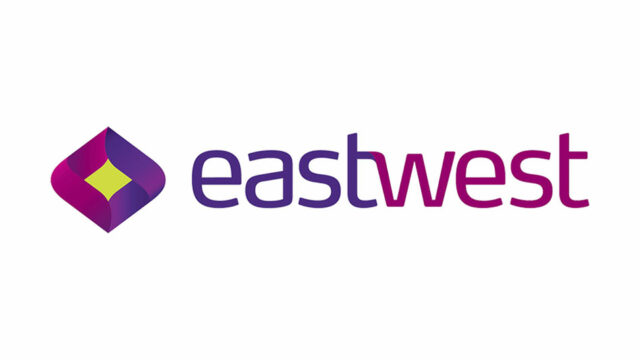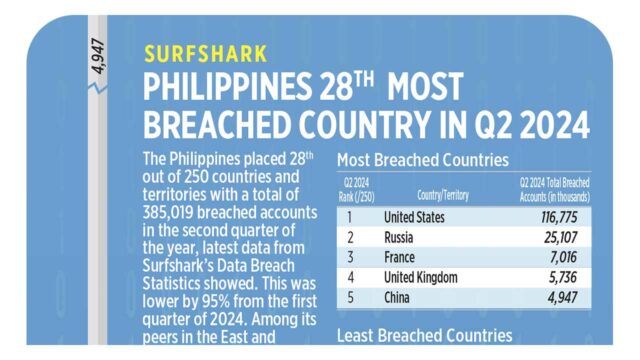Last Tuesday, Aug. 13, nine business and professional groups issued a “Joint Statement of Support for the Department of Energy” or DoE. They applauded DoE Secretary Raphael P.M. Lotilla for pursuing a policy of “a balanced energy mix… balanc[ing] energy security and affordability with climate change concerns to support its economic progress…. Energy insecurity is expensive.”
The groups were the Management Association of the Philippines (MAP), the Makati Business Club (MBC), the Employers Confederation of the Philippines (ECOP), the Federation of Philippine Industries (FPI), the Financial Executives Institute of the Philippines (FINEX), the Foundation for Economic Freedom (FEF), the Blockchain Council of the Philippines (BCP), the Fintech Alliance.PH, and the Women’s Business Council Philippines (WomenBiz).
Early this month the Philippine Chamber of Commerce and Industry (PCCI) announced their support of the DoE. See these reports in BusinessWorld: “Charges vs Lotilla have potential to drive investors away, PCCI says” (Aug. 5) and “‘Balanced’ energy mix keeps power affordable — biz groups” (Aug. 13).
Mr. Lotilla has endorsed the expansion of the Therma Visayas, Inc. (TVI) coal plant in Cebu, which will be constructing Unit 3. Last month the People for Power (P4P) coalition filed criminal and administrative cases against the DoE secretary, arguing that the expansion violates the moratorium on new coal projects declared by former DoE Secretary Alfonso Cusi in 2020.
Mr. Lotilla is correct. The 10 business and professional groups that support him are correct. The P4P and allied organizations and ideologues are wrong.
Here are some reasons why this is so (the numbers refer to the period from March to June 2024).
First, the Visayas has the smallest supply margin — supply minus demand minus reserve requirement plus imports from neighbors — compared to the Luzon and Mindanao grids. The Visayas has a margin average of only 144 megawatts/month (MW/month) vs 889 MW/month in Mindanao and 1,838 MW/month in Luzon. The Visayas needs additional capacity to avoid blackouts, like the horrible blackout that befell the four provinces of Panay in early January this year.
Low margins mean high prices. The price of power in the Visayas is higher on average than Luzon prices (by P1.50/kWh) and Mindanao prices (by P2.50/kWh). They need additional capacity to reduce the price.
The Visayas is exporting more power to Luzon (mainly geothermal from Leyte) than it imports, at an average of 149 MW/month. Then the Visayas is sucking extra supply from Mindanao, at an average of 291 MW/month.
Within the Visayas grid, Cebu is exporting power to Negros and Panay islands. That is why prices in the latter two islands are higher than in Cebu. Additional capacity in Cebu will help stabilize the prices in these three islands and sub-grids. Bohol, which mainly imports geothermal power from Leyte, has the highest prices in the Visayas.
Nationwide, coal provides about 62% of total power generation. Including gas and oil, fossil fuels contribute 80% of total electricity while wind and solar combined contribute only 4% of total (see the accompanying table). The share of oil-based plants in the total energy mix was 0.8% in March, 1.9% in April, 2.2% in May, and 1.7% in June.

Those who have deep angst against coal power should go off-grid and use purely solar and/or wind in their houses and offices.
The following officials in Cebu declared the need for additional capacity, baseload, or running new plants 24/7 this year: Cebu Provincial Governor Gwen Garcia (“‘Not in 2027 but now’: Garcia wants power self-sufficient Cebu,” The Freeman/Philstar, Feb. 3; “Cebu must ensure long-term power supply as economy grows,”Cebu Daily News, June 15); Cebu Chamber of Commerce and Industry (CCCI) President Charles Kenneth Co (“Cebu needs more power plants,” The Freeman/Philstar, Jan. 27), Mandaue Chamber of Commerce and Industry President Marc Ynoc and acting Cebu City Mayor Alvin Garcia (“Cebu as next Silicon Valley?: Looming power shortage weakens Cebu’s potential,” The Freeman/Philstar, Aug. 1).
I think that by now the local companies that are funding P4P in their coal-hating, RE- and indigenous gas-pushing campaign are ashamed that many high-profile Philippine business and professional organizations are supporting the DoE, and these pro-DoE groups have an idea who the backers of those ecological bullies are.
I congratulate the MAP, MBC, ECOP, FEF, FINEX, FPI, FinTech, BCP, WomenBiz, and PCCI for standing behind the DoE and Secretary Lotilla.
Bienvenido S. Oplas, Jr. is the president of Bienvenido S. Oplas, Jr. Research Consultancy Services, and Minimal Government Thinkers. He is an international fellow of the Tholos Foundation.
minimalgovernment@gmail.com














